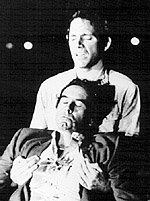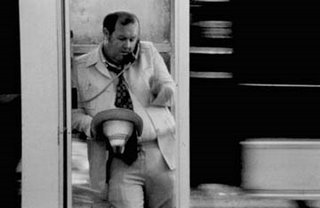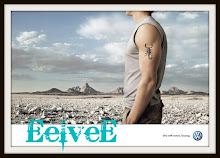
joel Coen
(1954 - )
Biography from Baseline's Encyclopedia of Film
Occupation:
Director
Also:
Screenwriter
Born:
November 29, 1954, St. Louis Park, MN
Education:
Simon's Rock of Bard College;
Institute of Film and TV, NYU
Working with his brother Ethan, screenwriter/director Joel Coen has built a reputation as one of the most visionary and idiosyncratic filmmakers of the late 20th century. Combining thoughtful eccentricity, wry humor, arch irony, and often brutal violence, the films of the Coen brothers have become synonymous with a style of filmmaking that pays tribute to classic American movie genres -- especially film noir -- while sustaining a firmly postmodern feel. Beginning with Blood Simple, their brutal, stylish 1984 debut, the brothers have amassed a body of work that has established them as two of the most compelling figures in American and world cinemas.
Born in St. Louis Park, MN, in 1954, Joel Coen studied at New York University before moving into filmmaking in the early '80s. He and his younger brother began writing screenplays while Joel worked as an assistant editor on good friend Sam Raimi's 1983 film The Evil Dead. In 1984, they made their debut with Blood Simple. Both of them wrote and edited the film (using the name Roderick Jaynes for the latter duty), while Joel took the directing credit and Ethan billed himself as the producer. It earned considerable critical acclaim and established the brothers as fresh, original talent. Their next major effort (after Crimewave, a 1985 film they wrote that was directed by Raimi), 1987's Raising Arizona was a screwball comedy miles removed from the dark, violent content of their previous movie, and it won over critics and audiences alike. Their fan base growing, the Coens went on to make Miller's Crossing (1990), a stark gangster epic with a strong performance from John Turturro, whom the brothers also used to great effect in their next film, Barton Fink (1991). Fink earned Joel a Best Director award and a Golden Palm at the 1991 Cannes Film Festival, as well as the festival's Best Actor award for Turturro. A surreal, nightmarish movie revolving around a writer's creative block, it was a heavily stylized, atmospheric triumph that further established the Coens as visionary arbiters of the bizarre.
Their 1994 follow-up to Barton Fink, The Hudsucker Proxy, was a relative critical and commercial disappointment, though it did boast the sort of heavily stylized, postmodern irony that had so endeared the brothers to their audience. Whatever failings The Hudsucker Proxy exhibited, however, were more than atoned for by the unquestionable success of the Coens' next film, Fargo (1996). A black, violent crime comedy with a surprisingly warm heart, it recalled Blood Simple in its themes of greed, corruption, and murder, but provided more redemptive sentiment than was afforded to the characters of the previous film. The brothers shared a Best Original Screenplay Oscar for their work, and another Oscar, for Best Actress, went to Frances McDormand, to whom Joel had been married since 1984.
Following Fargo, the Coens went on to make The Big Lebowski in 1998. A blend of bungled crime and warped comedy, Lebowski was a laid-back, irreverent revision of the hardboiled L.A. detective genre. It met with mixed critical reception, though it did receive a Golden Bear nomination for Joel Coen at the Berlin Film Festival. The year 2000 brought the Coens into the depression-era with O Brother, Where art Thou? An admittedly loose adaptation of Homer's The Odyssey, O Brother starred George Clooney, John Turturro, and Tim Blake Nelson as escaped convicts on a surreal journey through 1930s Mississippi. Wasting no time in production of their next feature, the following year found Joel the recipient of his third Best Director award at Cannes for the darkly comic, monochromatic post-noir The Man Who Wasn't There. Starring Billy Bob Thornton as a humble, small-town barber who gets mixed up in a tangled web of blackmail and deceit, the moody atmosphere of The Man Who Wasn't There eschewed the wacky antics of O Brother in favor of a darker, more moody tone that recalled such earlier Coen efforts as Blood Simple and Barton Fink.
Two years later, Joel and Ethan re-teamed with Clooney for Intolerable Cruelty, a film that represented their version of a '30s screwball comedy. The film was noteworthy in that it was the first movie made by the brothers that did not originate with them; they rewrote a script that was already in existence. Joel and Ethan were also listed as executive producers on the 2003 Terry Zwigoff film Bad Santa, a story that came from one of their original ideas. 2004 saw the release of the Coens' first remake, The Ladykillers starring Tom Hanks. That film also marked the first time Joel shared directorial credit with Ethan. -- Rebecca Flint
--------------------------------------------------------------------------------

Ethan Coen
(1957 - )
Biography from Baseline's Encyclopedia of Film
Occupation:
Producer
Also:
Screenwriter
Born:
September 21, 1957, St. Louis Park, MN
Education:
Simon's Rock of Bard College,
Massachusetts; Princeton University, NJ (philosophy)
Working alongside his brother Joel, Ethan Coen is widely considered one of the most visionary and idiosyncratic filmmakers of the late 20th century. Combining thoughtful eccentricity, wry humor, arch irony, and often brutal violence, the films of the Coen brothers have become synonymous with a style of filmmaking that pays tribute to classic American movie genres -- especially film noir -- while sustaining a firmly postmodern feel.
Born in St. Louis Park, MN, in 1957, Ethan Coen studied philosophy at Princeton University. Soon after he graduated, he and his brother began writing their first screenplays, and, in 1984, they made their debut with Blood Simple. Both of them wrote and edited the film (using the name Roderick Jaynes for the latter duty), while Joel took the directing credit and Ethan billed himself as the producer. It earned considerable critical acclaim and established the brothers as fresh, original talent. Their next major effort (after Crimewave, a 1985 film they wrote that was directed by Sam Raimi), 1987's Raising Arizona was a screwball comedy miles removed from the dark, violent content of their previous movie, and it won over critics and audiences alike. Their fan base growing, the Coens went on to make Miller's Crossing (1990), a stark gangster epic with a strong performance from John Turturro, whom the brothers also used to great effect in their next film, Barton Fink (1991). Fink earned Joel a Best Director award and a Golden Palm at the 1991 Cannes Film Festival, as well as the festival's Best Actor award for Turturro. A surreal, nightmarish movie revolving around a writer's creative block, it was a heavily stylized, atmospheric triumph that further established the Coens as visionary arbiters of the bizarre.
Their 1994 follow-up to Barton Fink, The Hudsucker Proxy, was a relative critical and commercial disappointment, though it did boast the sort of heavily stylized, postmodern irony that had so endeared the brothers to their audience. Whatever failings The Hudsucker Proxy exhibited, however, were more than atoned for by the unquestionable success of the Coens' next film, Fargo (1996). A black, violent crime comedy with a surprisingly warm heart, it recalled Blood Simple in its themes of greed, corruption, and murder, but provided more redemptive sentiment than was afforded to the characters of the previous film. The brothers shared a Best Original Screenplay Oscar for their work, and another Oscar, for Best Actress, went to Frances McDormand, to whom Joel had been married since 1984. Following Fargo, the Coens went on to make The Big Lebowski in 1998. A blend of bungled crime and warped comedy, Lebowski was a laid-back, irreverent revision of the hardboiled L.A. detective genre. It met with mixed critical reception, though it did receive a Golden Bear nomination for Joel Coen at the Berlin Film Festival. In 1999, Ethan closed out the decade by publishing Gates of Eden, a collection of his short stories.
The Coens next served up the depression-era comedy O Brother, Where Art Thou? (2000), which turned out to be their biggest box-office success at that time and spawned a Grammy-winning soundtrack. 2001 saw the release of The Man Who Wasn't There, yet another ode to film noir and another award winner at Cannes. In 2003, Ethan and Joel were credited as executive producers on Terry Zwigoff's hit comedy Bad Santa largely due to the fact that the origin of the film's story came from the Coens. That same year, the brothers re-teamed with George Clooney (one of the stars of O Brother) for the screwball comedy Intolerable Cruelty. In 2004, the duo released The Ladykillers starring Tom Hanks, a remake of the classic British comedy. The film marked the first time Ethan Coen officially shared the directing credit with Joel, as well as the first time they shared producer credit. -- Rebecca Flint






 Blood Simple Cast and Crew
Blood Simple Cast and Crew 



